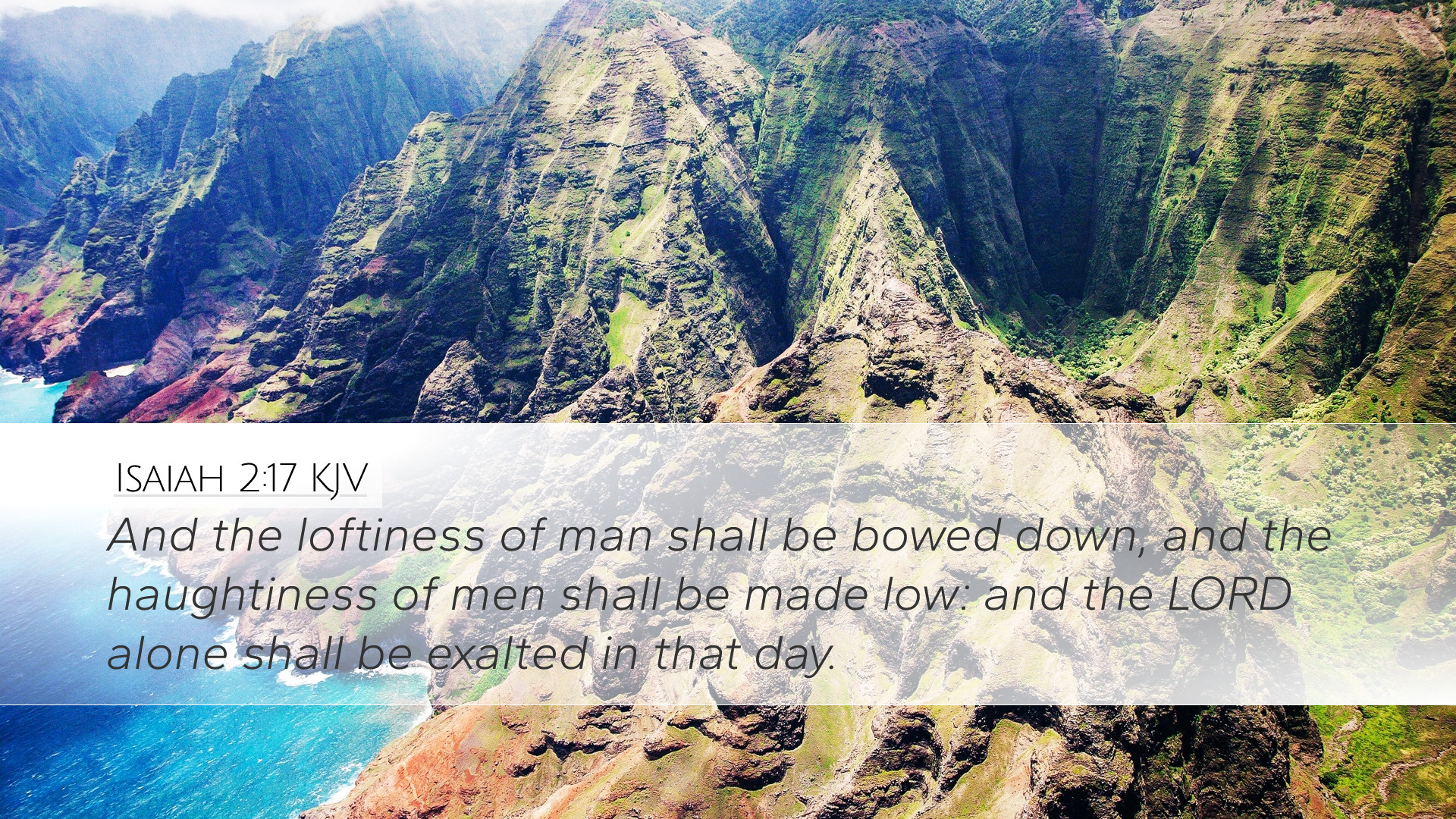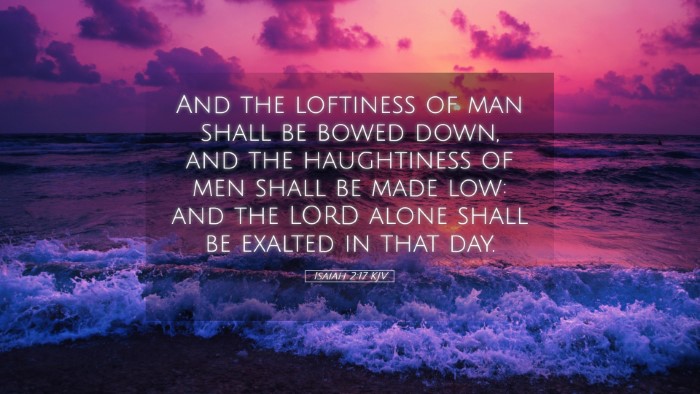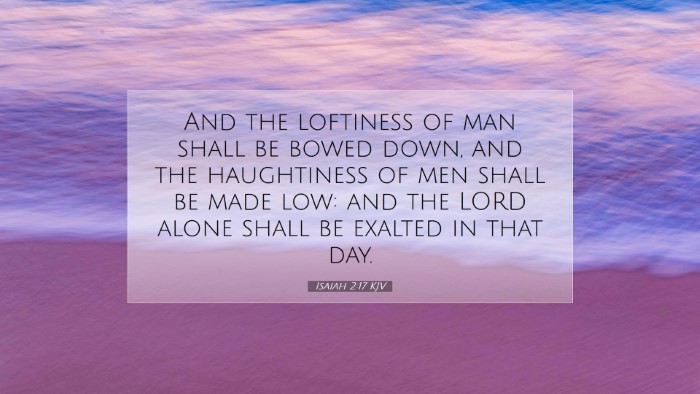Commentary on Isaiah 2:17
Isaiah 2:17 states: "And the loftiness of man shall be bowed down, and the haughtiness of men shall be made low: and the Lord alone shall be exalted in that day."
Introduction
This verse encapsulates a profound theological truth about humility before God and the inevitable exaltation of His holiness. Martin Henry, Albert Barnes, and Adam Clarke provide insights that enrich our understanding of this text. Collectively, they reflect on the nature of human pride, the certainty of divine judgment, and the sovereignty of God, which serves as guiding principles for believers.
The Theme of Humility
Both Matthew Henry and Albert Barnes emphasize the theme of humility in this passage. Henry notes that human pride, characterized by loftiness and haughtiness, will ultimately be brought low. This aligns with the scriptural perspective that God opposes the proud but gives grace to the humble (James 4:6).
- Matthew Henry:
He comments on how the ambitious aspirations of men will be humbled by the sovereign hand of God. Henry asserts that every act of self-exaltation leads to a greater fall, as God's justice prevails over human arrogance.
- Albert Barnes:
Barnes further illustrates that the proud will be stripped of their dignity and status. He remarks that this humbling process is not merely a consequence of human actions but is a divine response to the insolence exhibited by humanity.
The Day of the Lord
The reference to "that day" is critical to understanding Isaiah's prophecy. This term often signifies a time of divine intervention in history. Adam Clarke elaborates on this eschatological aspect, asserting that the "day of the Lord" will usher in God's judgment.
Divine Exaltation
As the verse transitions to declare that "the Lord alone shall be exalted," it charges believers with a reminder of God’s preeminence. Henry asserts that in the establishment of God's kingdom, all other allegiances and honors will be rendered insignificant.
- Matthew Henry:
He emphasizes that the exaltation of God is not merely prophetic; it is a call to humility and reverence. Every knee will bow before the majesty of God, thus reminding humanity of its place in the created order.
- Albert Barnes:
Barnes points out that God's exaltation will be universal. In the face of divine truth, all forms of human pride will crumble, reinforcing the ultimate trajectory of history toward God's glory.
Theological Implications
The implications of Isaiah 2:17 extend beyond the immediate context of ancient Israel. It serves as a theological foundation for the understanding of God’s nature and human responsibility.
- Humility as a Virtue:
This verse teaches that humility is essential for spiritual health. The emphasis on bowing down reflects the need for personal surrender before God’s authority.
- Judgment and Hope:
Isaiah’s words also carry a dual message: while judgment is pronounced against haughty humanity, there is hope for those who humble themselves. The loyal remnant that turns to God will witness His deliverance.
- Ultimate Accountability:
All persons are accountable to the sovereign God. This truth resonates with the larger narrative of Scripture, where God's judgment leads to restoration and renewal for those who seek Him.
Conclusion
Isaiah 2:17 serves as a potent reminder to pastors, students, theologians, and Bible scholars of the importance of humility, the inevitability of divine judgment, and the ultimate exaltation of the Lord. In the face of modernity’s pride and self-sufficiency, the faithful are called to embrace humility and acknowledge God's supreme authority.
By embracing the insights of Henry, Barnes, and Clarke, one finds a profound application for life, calling for personal reflection on one's standing before God, fostering a deep reverence for the divine, and encouraging a posture of supplication and service.


